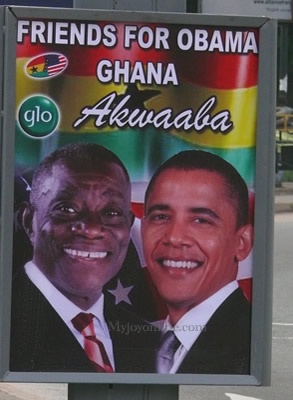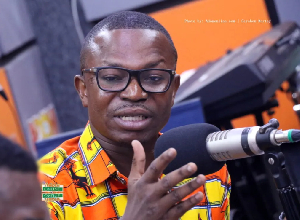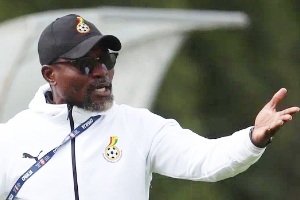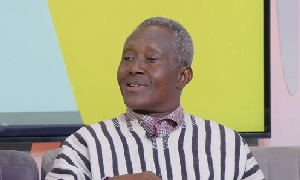President Obama’s visit to Ghana should give us all as Ghanaians deep pride in our country and in our international reputation. That our small West African nation has been chosen as the first in the whole continent to be so honoured since Obama took power is not due to the work of any individual, group or party. It is instead the result of an achievement we have built as a whole people since 1992 in not only the reborn of democracy but successfully warring off the infant mortality that has put paid to too many of our continental contemporaries.
We are right to feel proud of this achievement and President Obama is right to pay tribute to it. He is also right to recognise that the importance of our successful multi-party democracy reaches far beyond the 23 million people within our borders. It has profound significance for other African nations whose nascent democracies might yet falter and fall. It demonstrates that democracy can succeed in our continent, providing an example that can illuminate and inspire our continental kin, giving them the light to find their own way to the brighter future we all seek. And, that future is one of prosperity in freedom.
Ghana is fortunate to have reached a deeper level of democracy than many African nations where polling day is marked by distrust and scepticism and followed by widespread violence over controversial results leading too often to ineffective governments. Here we have succeeded in holding five consecutive elections in the Fourth Republic and we have succeeded in changing the reigns of power from one political party to another twice now.
But whilst we might be ahead of the pack, whilst we might lead the continent in the march towards democracy as we did 52 years ago, we still have a long road ahead of us and the future of our democracy is by no means certain.
In the search for good news stories emanating from Africa, which provides the international media with too many reports of conflict, bloodshed, famine and disaster, the son of Africa who now occupies the Oval Office is right to highlight our success and our potential.
But so too must we – and he – consider our failures and shortcomings. Those of us present in Ghana, those of us involved in last December’s election, those of us privy to the goings-on in and around the Electoral Commission, the political parties and in trouble-spots across the regions, we cannot forget how excruciatingly close we came to the kind of election break-down and violence we saw in Kenya and Zimbabwe. And nor should we.
So whilst Obama sees his trip to Ghana as a way of “lifting up successful models” and “highlight[ing] the effective governance that they have in place”, we hope he will also turn his focus to ensuring that this success continues by providing the attention and support we need to ensure that our 2012 elections do not again bring us so perilously close to the brink of violence.
With the well-founded concerns about the reliability of our electoral register last year, combined with attempts by certain forces to cast doubts about the fairness of the polls before they had even closed, and the involvement of the security forces in efforts to ready the country to reject a verdict deemed unacceptable, Ghana’s election was not quite the golden example it has been hailed as (or that we wish it had been).
The opposition (led by Prof. John Evans Atta Mills) was so ruthlessly efficient in developing in the minds of their hardcore supporters and also in that of some security personnel that the Electoral Commission and the ruling party were conspiring to rig the election results that had the results been legitimately called for Nana Akufo-Addo, Obama would probably not have considered Ghana a destination of choice. Ghana’s 2008 presidential election held the potential to deliver violence instead of peace, anarchy instead of order, regression instead of progression. A military takeover could not even have been ruled out, a point people privy to national security reports would find difficult to challenge.
There is no guarantee that the main opposition party today will not assume the kind of dangerously militant posture and speak the kind of language that got Ghana so close to a Kenya. So, what happens if unlike 2008, the Opposition does not get its electoral way after the 2012 results are announced?
To avoid this in 2012 we need to work much harder to build public faith and confidence in the nuts and bolts of our election machinery that, if properly organised, can ensure no room for inflammatory accusations of bias or tampering. We need to deny the rig-sayers the oxygen of legitimacy, with which to breathe fear, anger, hatred and venom into the lungs of the Ghanaian electorate.
In 2008, the rig-sayers were helped by the admission on the part of the Electoral Commissioner that the voter register was massively bloated. South Africa, with a population of 47 million people, counted a voter population of some 12 million. Ghana, with a population of less than 23 million people, said it had a voter population of some 10 million. Not only does a bloated register give political parties the opportunity to rig elections, they also give rig-sayers the legitimacy to say to their supporters and sympathisers that they have been cheated and that they should stand up and resist – whether the claim is true or false. This is what characterised last year’s general elections in Ghana and Ghana, we dare say, was probably only saved by the fact that the results were called for the main opposition party and not for the incumbent government. How then do we secure the legitimacy of not only the electoral process in Ghana but also the victory of an incumbent government?
This is of particular importance in countries like ours (and the US) where a virtual two-party system can produce victories based on razor-thin majorities, where a relatively small amount of rigging has the potential to dramatically change the result. Ghana is far from securing its current position as a model democracy for the majority of the continent. We need to do so and that process must begin now.
Significant voices have been advocating the change to a biometric system of voting, which would, like the E-Zwich system, ensure that only the registered person with a matching thumb-print could vote. This would be supported by a biometric register that would, for the first time, be accurate and uncorrupted beyond any reasonable doubt. It would be implemented by electronic machines such as those used by 714 million voters in India’s recent election, and which provide a vastly more secure, accurate and fair election.
If we had biometric voting in Ghana in 2012, not only would we assure our continued position as a beacon of democracy and hope for the continent, but we would also lead the way yet again in demonstrating a method and a means by which to overcome one of the major hurdles facing young democracies in Africa – manipulation of the votes and accompanying mistrust of the result.
From his own election experience and that of his country (particularly in 2000) Obama must be able to appreciate the tensions that arise when an already close election is further confused by electoral irregularities. And so we appeal for his support – diplomatic and financial – to equip Ghana with an electoral system that we can make real what Obama has described as the “democratic commitments that ensure stability in a country”.
None of us – home or abroad – can afford to be complacent in defending our democracy, for as the recent Afrobarometer poll showed, whilst Ghanaians may favour democracy over all other forms of government (78%) they are less impressed with the tangible results it has delivered and their patience with the system has dropped from 80% in 2005 who thought we should give it more time to 62% last year.
Obama’s trip will be vital on this point, identifying trade links as well as aid assistance that will help bring real improvements to people’s lives. Such cooperation is crucial and must be a priority. But ultimately we would be wise to heed Obama’s declaration that “the African continent is a place of extraordinary promise as well as challenges. We're not going to be able to fulfill those promises unless we see better governance” – and this means reliable credible polls: it means biometric voting.
So when President Obama said “I think that you've got some very strong leadership in Africa that is ready to move forward and we want to be there with them”, we should take him at his word and ask him to join with us in putting in place a new electoral system that will be a crucial step to fulfilling our promise as a nation, and a crucial example of how we can move forward in fulfilling our promise as a continent.



















